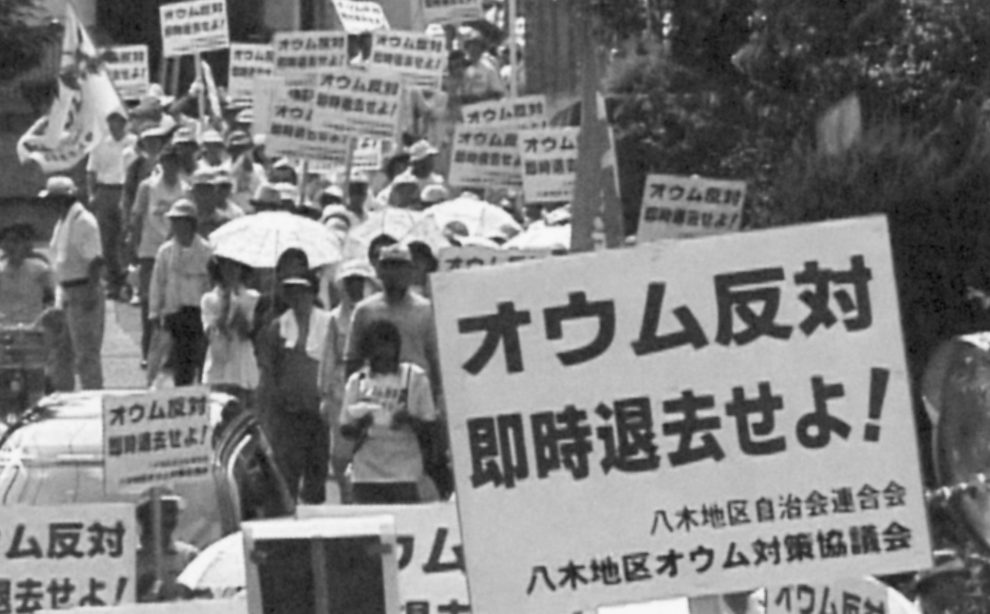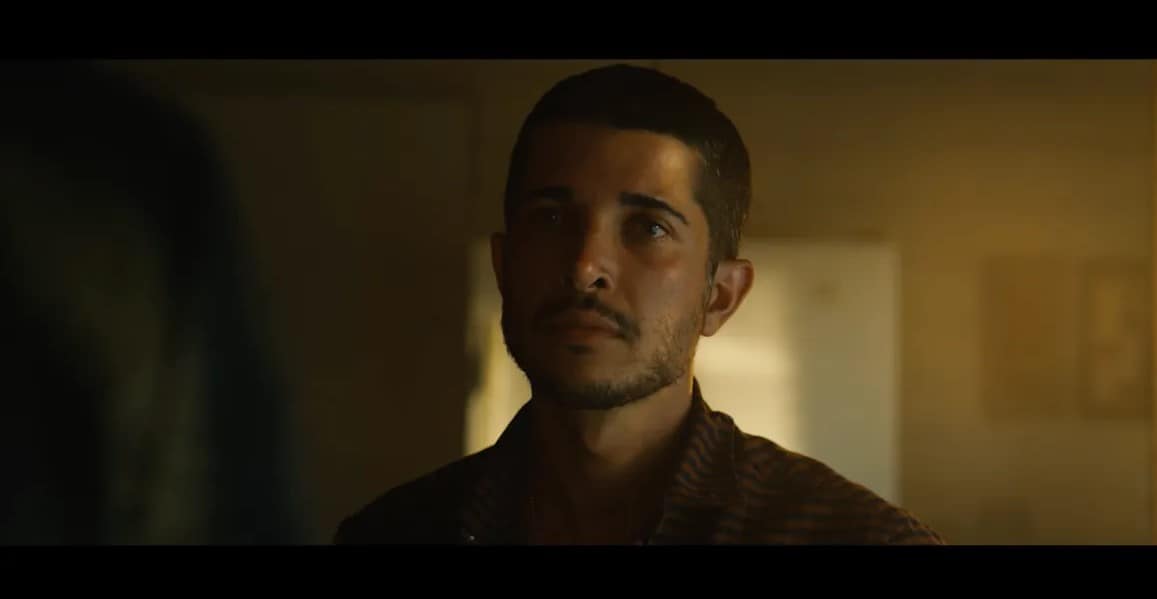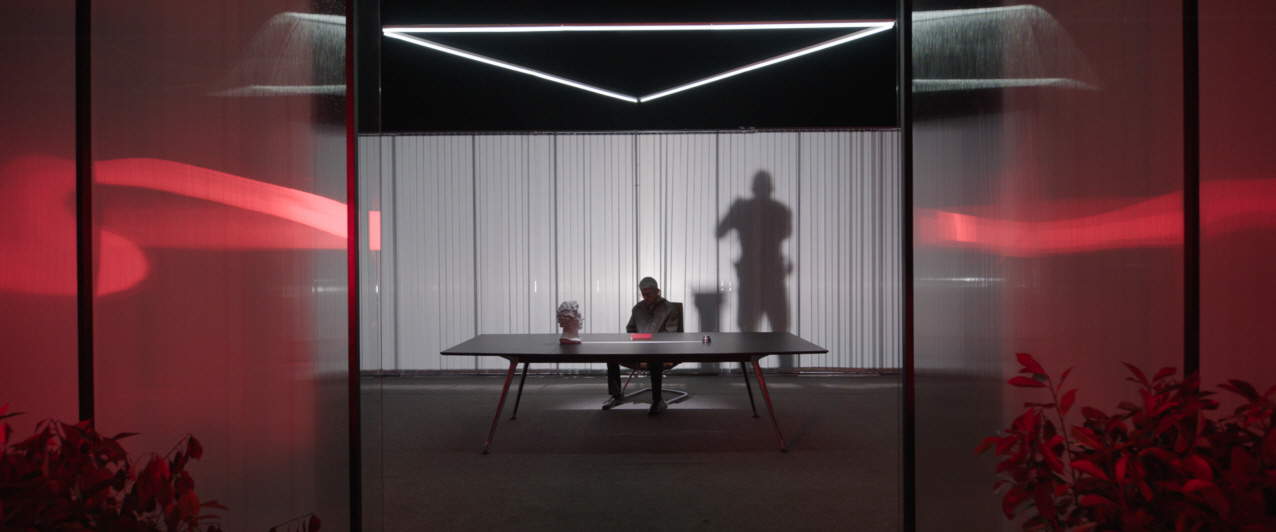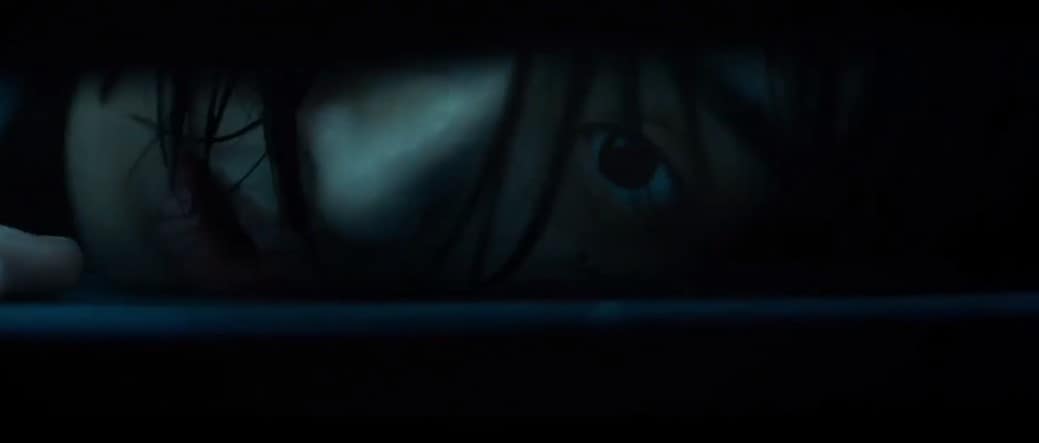Aum Shinrikyo, currently renamed as Aleph, and particularly the reasons and consequences of their 1995 Subway Sarin Gas Attack has always been a controversial theme as much as a burden and topic of research for the Japanese, as one of the latest documentary, “Me and the Cult Leader, released in 2020, eloquently highlights. One of the first documentarians to deal with the topic, however, was Tatsuya Mori, with the two films he shot in 1997 and 2002, titled “A” and “A2” deeming him also a controversial figure, before, some years later, being recognized as one of the most important documentary filmmakers of the country. This review will focus on the second of the two movies.
“A2” is screening for free at DAFilms as part of the “Made in Japan, Yamagata 1989 – 2021” program
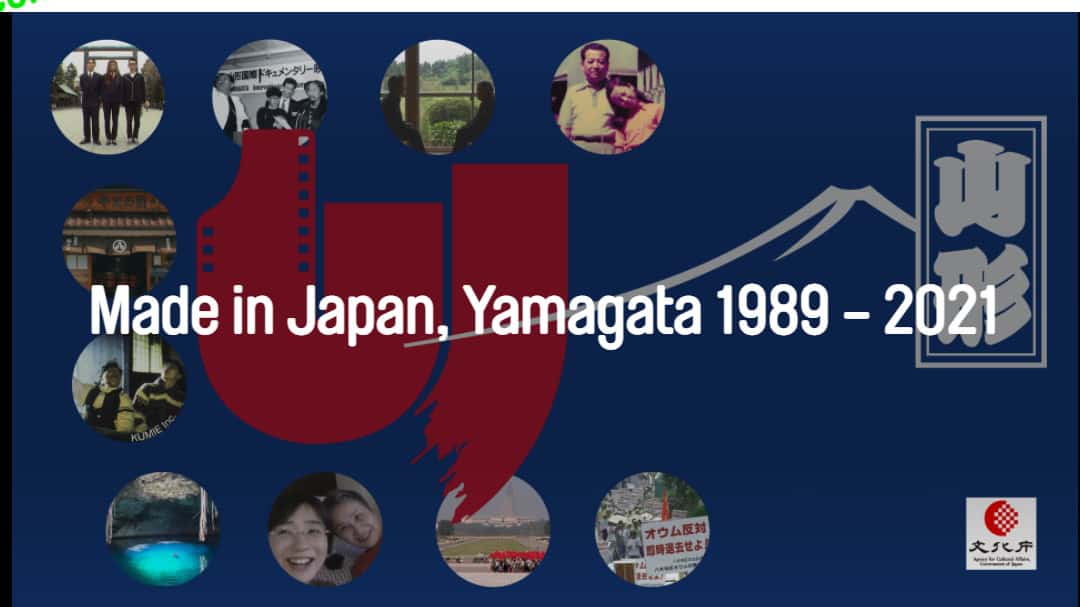
Although the first doc signaled a closure for Mori regarding Aum, the passing of a new law that stipulated continuous surveillance of the group by the authorities, instigated him to shoot a sequel, following the remaining members of the sect in their everyday lives under the eye of the police and a number of citizens who make no effort to hide their hostility towards them.
Mori actually alternates his footage, focusing on all three of the groups, each of which face their own struggles, as he moves from city to city in order to get a more general idea regarding what the remaining members are occupying themselves with. The attitude of the members, including “Me and the Cult Leader” person of focus, Hiroshi Araki, is rather controversial. On the one hand, they feel remorse and guilt about the actions of some of the members, but continue to insist that the teachings of Shoko Asahara still apply, while they are not willing to disband due to what happened, or the hatred the rest of society seems to harbor against them. This contradicting mentality is one that Mori tries to explore as much as possible, although his occasionally pointed questions are usually met with “no comments” replies, as the members interviewed seem to have been instructed to be very careful on what they say or do. At the same time, the kindness and politeness that characterizes them, which has actually led them to make friends among both the police and some inhabitants of the places they live in, add even more to their whole contradicting portrait.
The scenes where the members of Aleph try to apologize and declare their will to compensate the victims, in a number of private meetings, are among the strongest in the movie, since, despite their civilized ways, the people who meet them are openly hostile, clearly declaring that they do not need their apologies, they just want them to go away, both literally and metaphorically.
The reactions, however, are not always civil, as a number of groups hold meetings or even try to forcefully enter the various buildings the members of the cult are staying in, coming to clash with the police, whose members, on a number of occasions, seem perplexed by having to guard people whom they also despise.
Lastly, the film also focuses on the everyday lives of the members, who still meditate using their trademark device, occasionally oblivious to what the rest of the world is thinking about them. In that fashion, Mori observes, but leaves the answers to the many questions regarding the why they continue or where they keep finding funds to sustain themselves, to the audience, in a style that could be described as observational, if he did not so frequently become part of the “action” himself.
HIs own and Takaharu Yasuoka's editing works quite well in the film, with the succession of scenes being ideal, while there is no sequence that could be even remotely perceived as unnecessary, thus resulting in a documentary that is utterly economical, despite its 131 minutes.
“A2” is an excellent movie, highlighting Mori's directorial abilities as much as the fact that he knows his subject, while the rather interesting topic is bound to still draw in people who are interested in Aum, and also the concept of the cult as a whole.


